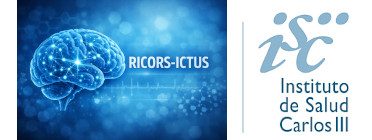Alonso-Alonso ML, Sampedro-Viana A, Rodríguez-Yáñez M et al. Int J Mol Sci. 2023 Feb 13;24(4):3746. doi: 10.3390/ijms24043746. PMID: 36835156
https://pubmed.ncbi.nlm.nih.gov/36835156/
Abstract: : The circadian system regulates numerous physiological variables, including body temperature. Additionally, a circadian patter has been described in stroke onset. Considering this, we hypothesised that the chronobiology of temperature may have an impact on stroke onset and functional outcomes. We also studied the variation of blood biomarkers according to stroke onset time. This is a retrospective observational study. Of the patients included, 2763 had a stroke between midnight and 8:00 h; 1571 between 8:00–14:00 h; and 655 between 14:00 h and midnight. Axillary temperature was measured at admission. At this time, blood samples were collected for biomarker analysis (TNF-α, IL-1β, IL-6, IL-10, and glutamate). Temperature was higher in patients admitted from 8:00 h to midnight (p < 0.0001). However, the percentage of poor outcome at 3 months was highest in patients from midnight to 8:00 h (57.7%, p < 0.001). The association between temperature and mortality was highest during night time (OR: 2.79; CI 95%: 2.36–3.28; p < 0.001). These patients exhibited high glutamate (220.2 ± 140.2 µM), IL-6 (32.8 ± 14.3 pg/mL) and low IL-10 (9.7 ± 14.3 pg/mL) levels. Therefore, temperature chronobiology could have a significant impact on stroke onset and functional outcome. Superficial body hyperthermia during sleep seems to be more dangerous than during wakefulness. Further studies will be necessary to confirm our data.
Funding: This research was funded by Spanish Ministry of Science and Innovation (SAF2017-84267- R), PDC2021-121455-I00, Xunta de Galicia (Consellería de Educación: IN607A2022-03), Instituto de Salud Carlos III (ISCIII) (PI17/00540, PI17/01103), ISCIII/PI21/01256/Co-financed by the European Union, Spanish Research Network on Cerebrovascular Diseases RETICS-INVICTUS PLUS (RD16/0019/0001), RICORS-ICTUS (Cerebrovascular diseases) D21/0006/0003. M. Bazarra-Barreiros is a PFIS Researcher (FI22/00200) of Instituto de Salud Carlos III. T. Sobrino (CPII17/00027), F. Campos (CPII19/00020) and R. Iglesias-Rey (CP22/00061) from the Miguel Servet Program of Instituto de Salud Carlos III and Co-financed by the EU. Sponsors did not participate in the study design, collection, analysis, or interpretation of the data, or in writing the report.

